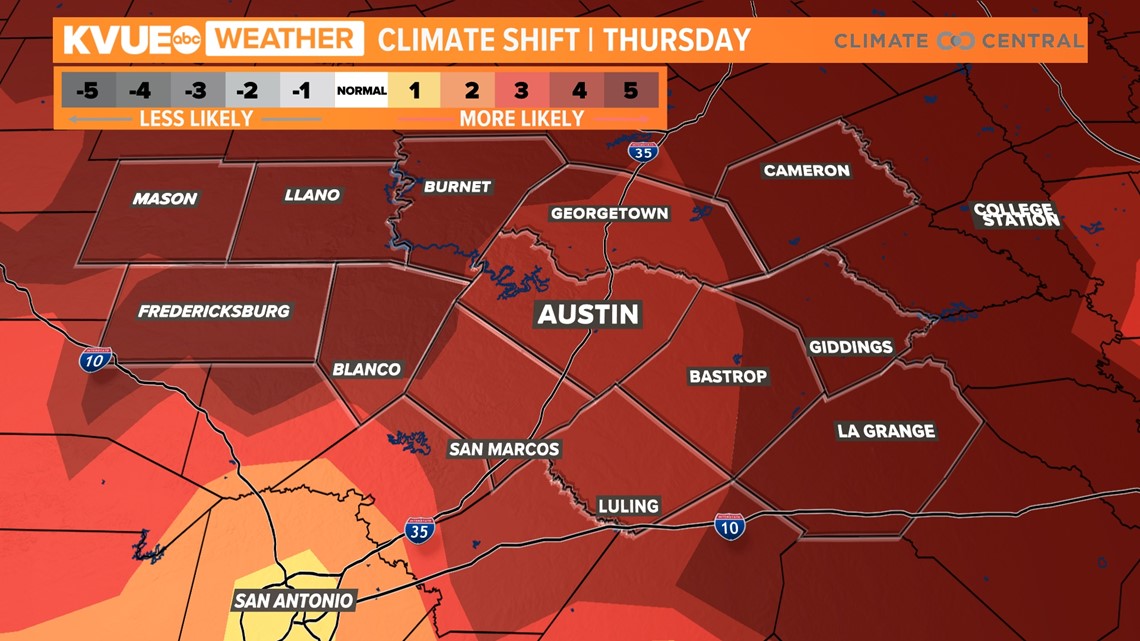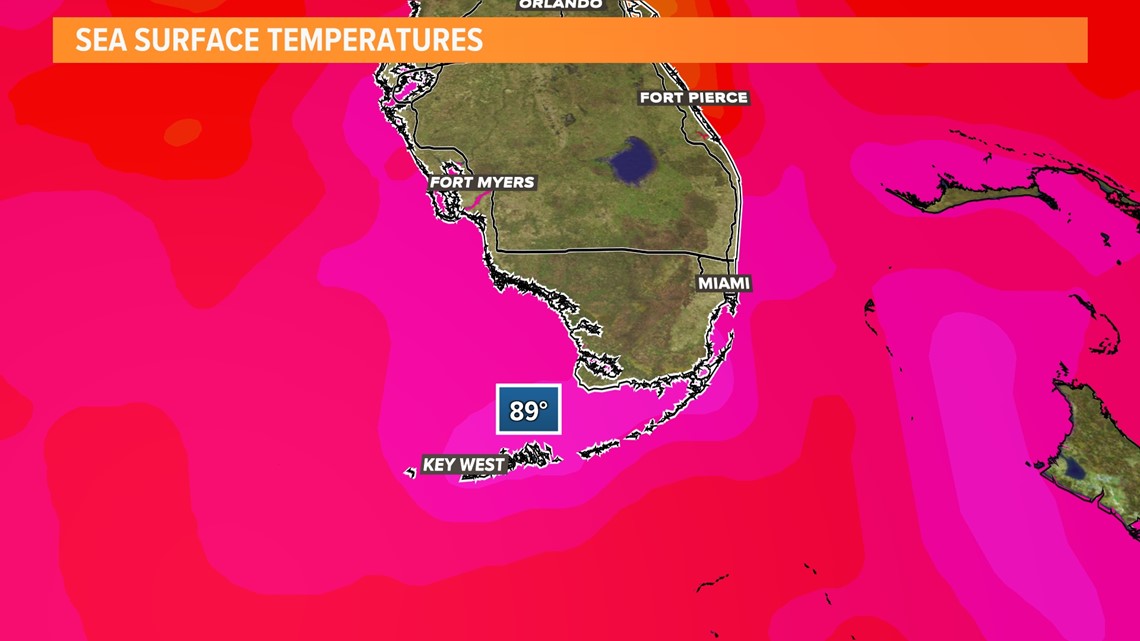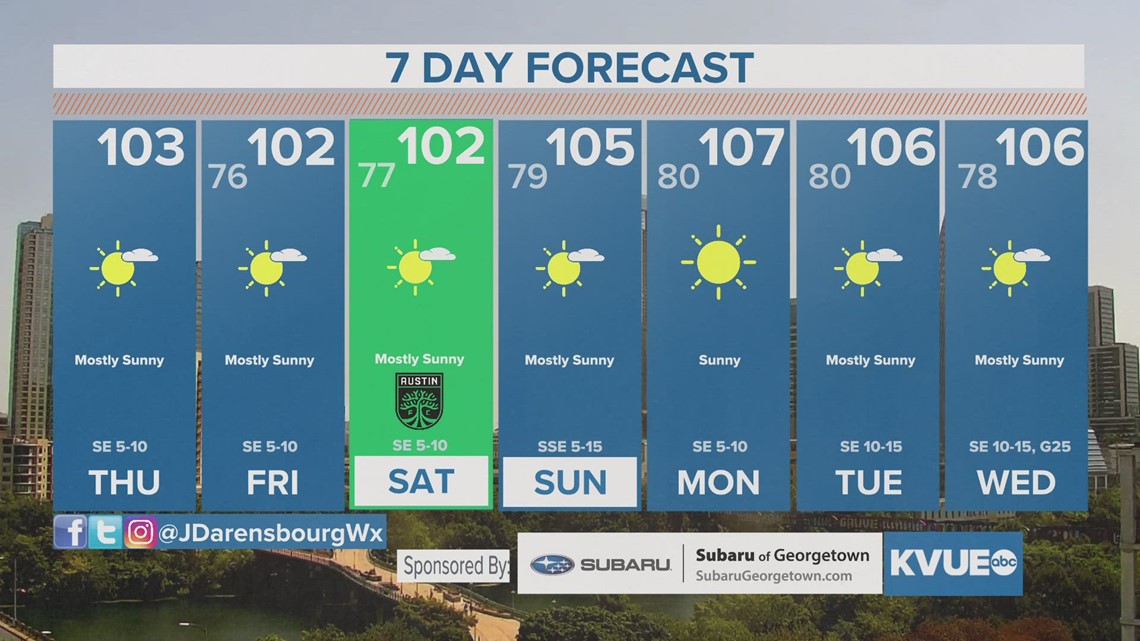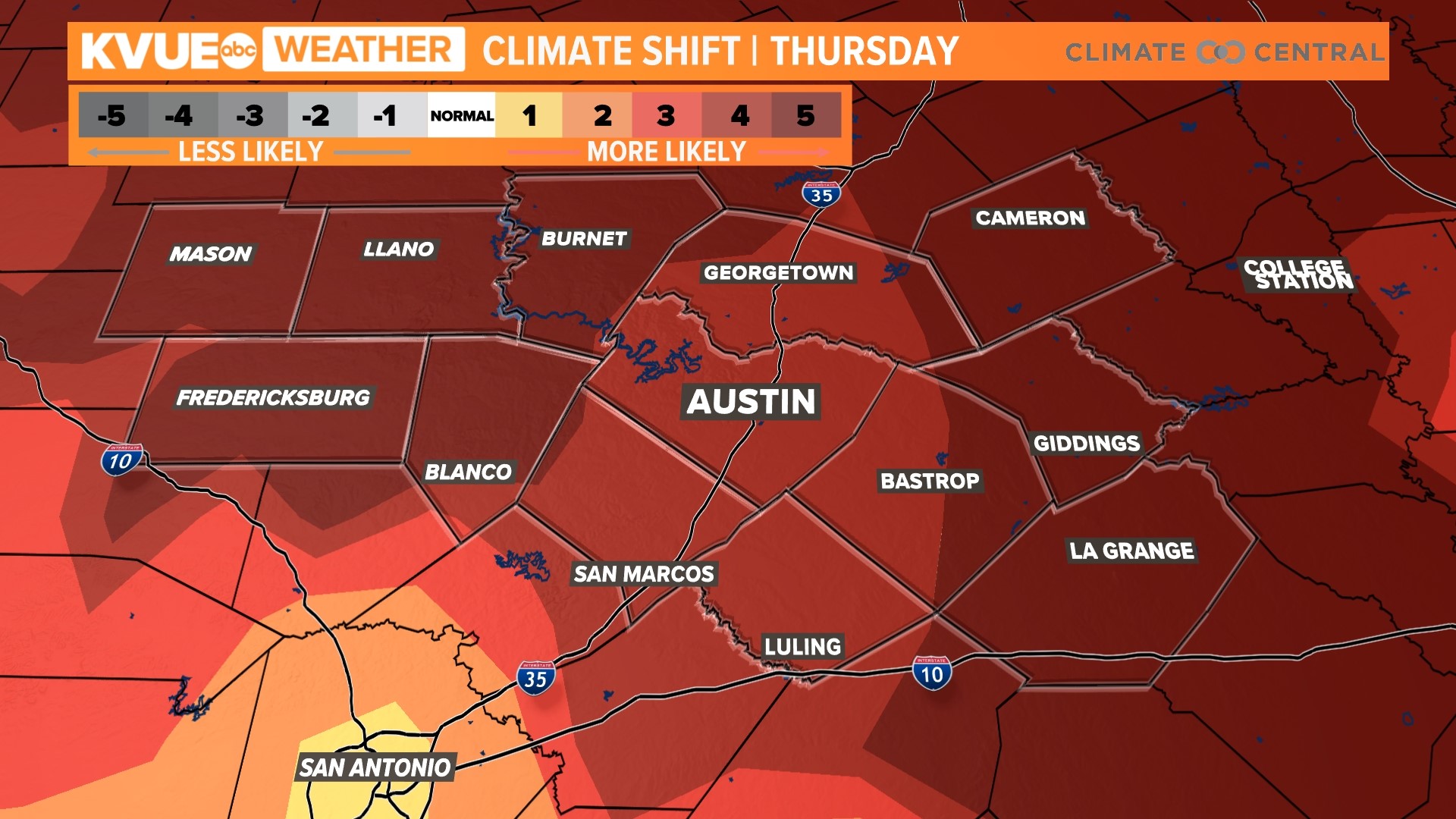AUSTIN, Texas — In case you haven't noticed, it's hot in Central Texas this summer. Very hot.
In fact, we're in the midst of one of the hottest Julys on record – so much so that we're currently on pace to have the hottest July on record with an average temperature of 90.8 degrees through the first 27 days of the month.
But how – and perhaps more importantly, why – is this happening?
A team of researchers recently confirmed that human-induced climate change is the main driving force behind the heat waves in the U.S. and in Europe. More than 2,000 heat records have been broken in the U.S. in the past month, with Central Texas among the many regions experiencing record-breaking heat.
Most of the region's heat is four to five times more likely to be caused by human-induced climate change, according to Climate Central.


Additionally, it's not just Central Texas that's dealing with impacts of climate change. As we all know, climate change has national and global ramifications, such as a potential collapse of the Atlantic sea currents, which could happen as early as 2025, and the ongoing sea surface temperatures rising near the tip of Florida, causing coral reefs to bleach or turn white.
As of Thursday, estimates show sea surface temperatures are at around 90 degrees, which is not as hot as the potential record of 101 set near Manatee Bay, Florida.
That being said, it is still really warm. A recent story by KVUE's Bob Buckalew highlighted the water waters and the potential implications they may have on hurricane season:


Scientists believe that human-induced climate change is expected to intensify unless measures are taken to address them.
Stick with the KVUE Weather Team as we continue to dive into how climate change is impacting us here in Central Texas and globally.
In the meantime, your 7-day outlook is below.



